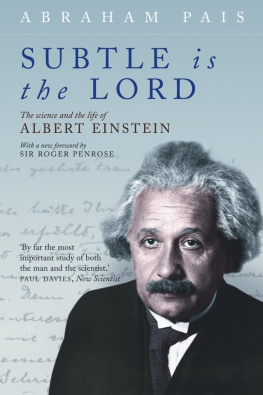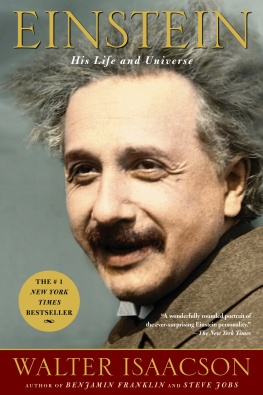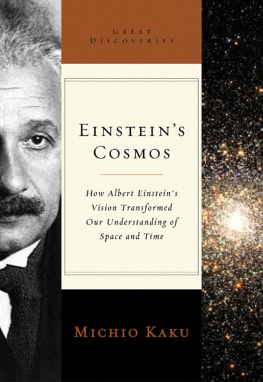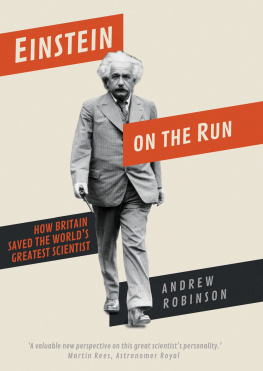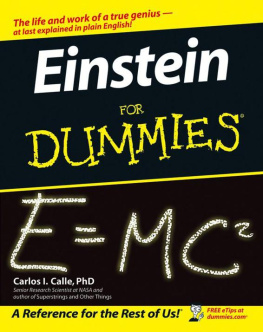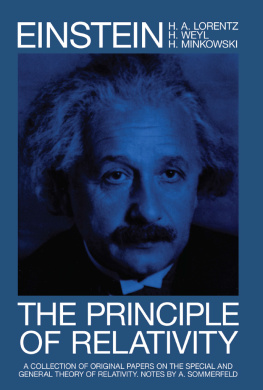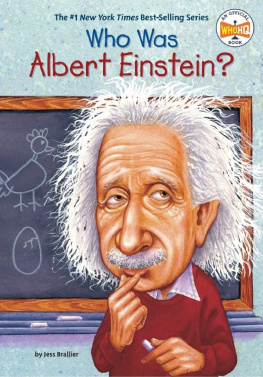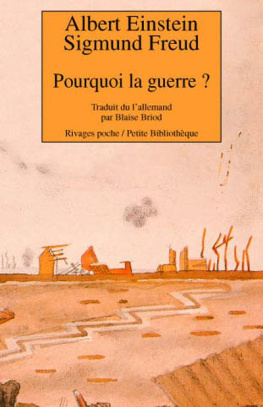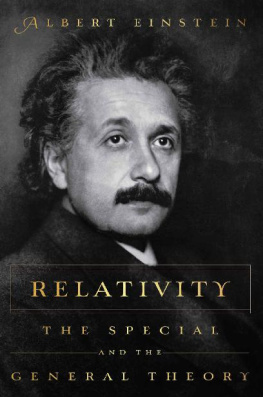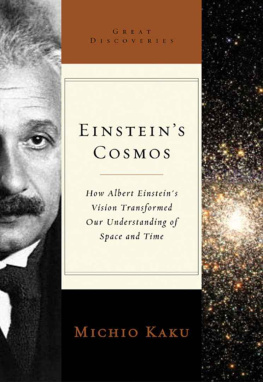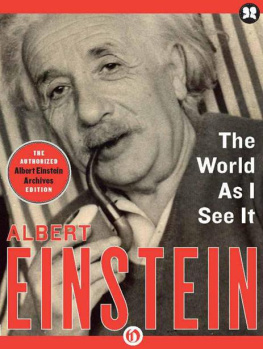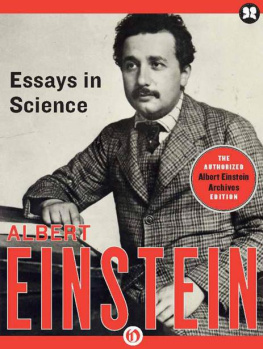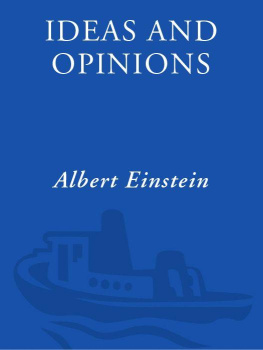Einstein Albert - Subtle is the lord ...: the science and the life of Albert Einstein
Here you can read online Einstein Albert - Subtle is the lord ...: the science and the life of Albert Einstein full text of the book (entire story) in english for free. Download pdf and epub, get meaning, cover and reviews about this ebook. City: Oxford;Germany, year: 2008;2014, publisher: Oxford University Press, genre: Non-fiction. Description of the work, (preface) as well as reviews are available. Best literature library LitArk.com created for fans of good reading and offers a wide selection of genres:
Romance novel
Science fiction
Adventure
Detective
Science
History
Home and family
Prose
Art
Politics
Computer
Non-fiction
Religion
Business
Children
Humor
Choose a favorite category and find really read worthwhile books. Enjoy immersion in the world of imagination, feel the emotions of the characters or learn something new for yourself, make an fascinating discovery.
- Book:Subtle is the lord ...: the science and the life of Albert Einstein
- Author:
- Publisher:Oxford University Press
- Genre:
- Year:2008;2014
- City:Oxford;Germany
- Rating:5 / 5
- Favourites:Add to favourites
- Your mark:
- 100
- 1
- 2
- 3
- 4
- 5
Subtle is the lord ...: the science and the life of Albert Einstein: summary, description and annotation
We offer to read an annotation, description, summary or preface (depends on what the author of the book "Subtle is the lord ...: the science and the life of Albert Einstein" wrote himself). If you haven't found the necessary information about the book — write in the comments, we will try to find it.
Subtle is the lord ...: the science and the life of Albert Einstein — read online for free the complete book (whole text) full work
Below is the text of the book, divided by pages. System saving the place of the last page read, allows you to conveniently read the book "Subtle is the lord ...: the science and the life of Albert Einstein" online for free, without having to search again every time where you left off. Put a bookmark, and you can go to the page where you finished reading at any time.
Font size:
Interval:
Bookmark:

Albert Einstein in 1896.
(Einstein Archive)
ABRAHAM PAIS
Rockefeller University


Great Clarendon Street, Oxford ox 2 6DP
Oxford University Press is a department of the University of Oxford.
It furthers the Universitys objective of excellence in research, scholarship,
and education by publishing worldwide in
Oxford New York
Auckland Cape Town Dar es Salaam Hong Kong Karachi
Kuala Lumpur Madrid Melbourne Mexico City Nairobi
New Delhi Shanghai Taipei Toronto
With offices in
Argentina Austria Brazil Chile Czech Republic France Greece
Guatemala Hungary Italy Japan Poland Portugal Singapore
South Korea Switzerland Thailand Turkey Ukraine Vietnam
Oxford is a registered trade mark of Oxford University Press
in the UK and in certain other countries
Published in the United States
by Oxford University Press Inc., New York
Oxford University Press 1982
Foreword Roger Penrose 2005
The moral rights of the author have been asserted
Database right Oxford University Press (maker)
First published 1982
First issued as an Oxford University Press paperback, 1983
Reissued with a new foreword, 2005
All rights reserved. No part of this publication may be reproduced, stored in a retrieval system, or transmitted, in any form or by any means, without the prior permission in writing of Oxford University Press, or as expressly permitted by law, or under terms agreed with the appropriate reprographics rights organizations. Enquiries concerning reproduction outside the scope of the above should be sent to the Rights Department, Oxford University Press, at the address above
You must not circulate this book in any other binding or cover
and you must impose this same condition on any acquirer
British Library Cataloguing in Publication Data
Data available
Library of Congress Cataloging in Publication Data
Pais, Abraham, 1918
Subtle is the Lord.
Bibliography: p. Includes index.
1. Einstein, Albert, 18791955. 2. Physicists
Biography. 3. PhysicsHistory. I. Title.
QC16.E5P26 530.0924 [B] 822273 AACR2
Printed in Great Britain
on acid-free paper by
Ashford Colour Press Ltd.,
Gosport, Hampshire
ISBN 0192806726
ISBN 9780192806727
To Joshua and Daniel
Science without religion is lame, religion without science is blind. So Einstein once wrote to explain his personal creed: A religious person is devout in the sense that he has no doubt of the significance of those super-personal objects and goals which neither require nor are capable of rational foundation. His was not a life of prayer and worship. Yet he lived by a deep faitha faith not capable of rational foundationthat there are laws of Nature to be discovered. His lifelong pursuit was to discover them. His realism and his optimism are illuminated by his remark: Subtle is the Lord, but malicious He is not (Raffiniert ist der Herrgott aber boshaft ist er nicht.). When asked by a colleague what he meant by that, he replied: Nature hides her secret because of her essential loftiness, but not by means of ruse (Die Natur verbirgt ihr Geheimnis durch die Erhabenheit ihres Wesens, aber nicht durch List.).
The world of science is greatly fortunate that a theoretical physicist of the distinction of Abraham Pais should have discovered within himself not only a particular talent for scientific biography but also a passionate desire to convey to us his unique perspective on the momentous developments in 20th-century physics that he had witnessed. Himself a very significant later contributor, Pais had been well acquainted with most of the key figures in this highly remarkable period of scientific development, and he was able to combine his own deep understanding of the central physical ideas with a personal knowledge of these individuals.
Pais had worked with Niels Bohr in 1946 and later wrote a comprehensive biography of Bohrs life and work. above the fireplace in the faculty lounge of the mathematics building in Princeton) which in the original German reads
Raffiniert ist der Herrgott aber boshaft ist er nicht.
Pais translates this as Subtle is the Lord, but malicious He is not.
There have been numerous biographies of Einstein, both before and after this one, but what distinguishes Paiss book is the detail and insight into Einsteins handling of the physical ideas. As Einstein had earlier commented: The essential of the being of a man of my type lies precisely in what he thinks and how he thinks, not what he does or suffers.
On the scientific side, there is, indeed, much to be said. For Einstein contributed far more to the physics of the early 20th century than just relativity. Apart from Max Planck, with his ground-breaking work of 1900 (on the spectrum of blackbody radiation), Einstein was the first to break away from the classical physics of the time and to introduce the crucial quantum wave/particle ideathe idea that despite light being an electromagnetic wave, it sometimes had to be treated as a collection of particles (now called photons). Through this work Einstein discovered the explanation of the photo-electric effect, this eventually winning him a Nobel Prize. He provided (in his doctorate thesis) a novel method of determining the sizes of molecules, at a time when their very existence was still controversial. He was one of the first to understand the detailed nature of the tiny wiggling Brownian motion of small particles in suspension and to provide a beginning to the new statistical physics. He contributed key ideas that led to the development of lasers. And all this is not to mention his revolutionary theories of special and general relativity!
In describing each of these contributions, Pais first sets the stage, lucidly describing the state of the relevant parts of physics at the time Einstein entered the scene, often explaining in significant detail the work of Einsteins precursors. Then we find Einsteins own fundamental contributions, introduced and discussed in depth, the essential novelty of Einsteins viewpoint being all very clearly set out, as is the profound influence that it had on subsequent work. This account indeed provides a wonderful overview of the developments in physics of the early 20th century, as there seems to be no major area of theoretical physics on which Einstein did not have some impact. This book is not a popular work, in the sense of the term that so often seems to involve distortions and oversimplifications in attempts to explain technical concepts to the lay reader. Instead, it comes seriously to grips with the physics involved in each major area that is treated and, where appropriate, mathematical equations are presented without apology.
Yet this is by no means simply a cold scientific account in which personal influences are deemed irrelevant. Pais illuminates many facets of Einsteins life, some of which may at first seem almost paradoxical. Pais may not always provide answers, but he expounds these issues in insightful ways. The common picture of Einstein is as an unworldly almost saintly old man, with twinkling eyes, moustache, wild white hair, and attired in a floppy sweater. But this was the Einstein who spent the last twenty years of his life in Princeton on a certain approach to a unified field theory that the majority of physicists would now judge to be basically misconceived. How does this picture relate to that of the Einstein of the miraculous year 1905, with an apparently dapper appearance, working at the Patent Office in Bern, and producing several epoch-making papers? What about Einsteins relation to quantum mechanics? Can we understand why he had set off on his lonely route, at first so much ahead of his contemporaries and then very much to one side of them, so that eventually they seemed convincingly to have passed him by? Do we find clues to his science in his early years, such as when as a child of about five he was enchanted by the seemingly miraculous behaviour of a pocket compass, or when at twelve he was enthralled by Euclid? Or may we learn as much from a remark from his teacher in the Munich Gymnasium asserting that he would have been much happier if young Albert had not been in his class: you sit there in the back row and smile, and that violates the feeling of respect which a teacher needs from his class? Einsteins early ability to find authority funny was a trait which stayed with him until the end.
Font size:
Interval:
Bookmark:
Similar books «Subtle is the lord ...: the science and the life of Albert Einstein»
Look at similar books to Subtle is the lord ...: the science and the life of Albert Einstein. We have selected literature similar in name and meaning in the hope of providing readers with more options to find new, interesting, not yet read works.
Discussion, reviews of the book Subtle is the lord ...: the science and the life of Albert Einstein and just readers' own opinions. Leave your comments, write what you think about the work, its meaning or the main characters. Specify what exactly you liked and what you didn't like, and why you think so.

